Battling coronavirus myths
Hong Kong -- A friend of a friend in Hong Kong recently said that he didn’t believe the novel coronavirus could be transferred from human to human through airborne droplets. The young, educated professional said this confidently, without irony, to a group of colleagues while wearing a disposable face mask. His source for the claim? A WhatsApp group message that cited an unknown doctor. I was stunned when my friend told me the story. An educated professional falling for such blatant misinformation?
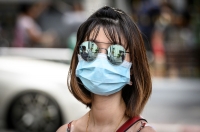
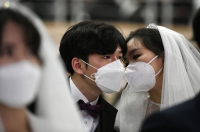
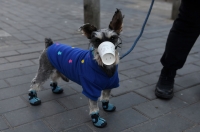
The world is enduring a global epidemic after the novel coronavirus, which causes the COVID-19 illness, spread to more than 60 countries. Simultaneously, we’re facing a similar epidemic of misinformation about the virus online, as social media users share misleading reports and conspiracy theories.
I work as a fact-checker, so I am used to misinformation. It’s generally rife online and it almost always spikes during a major news event. And anyone can fall for it, as I’m once again seeing with this outbreak.
On the plus side, the deluge of disinformation means that work for me and my colleagues on the fact-check editing desk in Hong Kong is never dull. I work with a team of reporters and editors in ten countries and territories in the Asia Pacific region. We publish articles on our fact checking blog and Twitter account every day, and for at least the past month, our news agenda has been dominated by misinformation about COVID-19. We've debunked dozens of claims in English alone across the globe, with my patch of Asia being particularly busy.
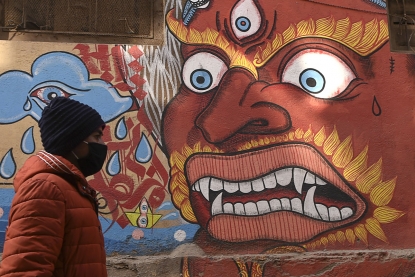 A resident wearing a protective facemask walks at the Patan Durbar Square area in Kathmandu on February 10, 2020. (AFP / Prakash Mathema)
A resident wearing a protective facemask walks at the Patan Durbar Square area in Kathmandu on February 10, 2020. (AFP / Prakash Mathema)We’ve tackled everything from dodgy advice for possible prevention methods and cures; hoax reports about new cases in various cities and countries; conspiracies about the origins of the virus and how it is being dealt with in China; as well as outlandish claims about how doctors predict it will develop. Sadly, the wave of misinformation has also regularly been accompanied by a deliberately xenophobic commentary about Chinese people and their culture, which falsely suggests the virus is somehow innately related to Chinese ethnicity.
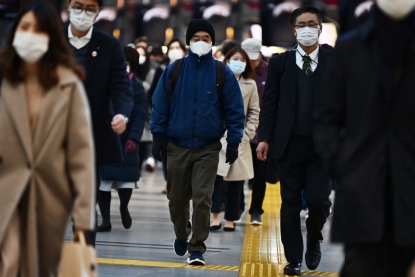 Mask-clad commuters make their way to work during morning rush hour at the Shinagawa train station in Tokyo on February 28, 2020. (AFP / Charly Triballeau)
Mask-clad commuters make their way to work during morning rush hour at the Shinagawa train station in Tokyo on February 28, 2020. (AFP / Charly Triballeau)When I’ve not been helping to debunk falsehoods circulating online about the virus, I’ve been enduring the impact of coronavirus misinformation in my day-to-day life. The situation in Hong Kong during recent months has felt a bit surreal at times. A hoax message that circulated on WhatsApp, WeChat and Facebook suggested there was a danger that toilet paper might run out in the city because of supply problems in mainland China caused by the virus outbreak. One message circulated amongst Hongkongers in Chinese read in part: “Breaking news! At least for two months [China] will not produce...toilet paper! Mainland will not provide raw materials of toilet paper for other places either...Because nobody goes back to work in factories!”
The false claim that circulated ironically sparked a panic buying frenzy, resulting in many supermarkets selling out of loo roll completely. Observers suggested subsequent videos and photos of the panic buying shared on social media sparked further panic buying. As a journalism professor friend of mine said, the message was a “self-fulfilling prophecy”; if there wasn’t any danger of a shortage to begin with, there would be by the end of the crisis.
The other concerning trend has been the panic buying of face masks in Hong Kong, as fears over the virus’ spread grow here. Near my home, it has become common to see hundreds of people queuing up to buy disposable surgical face masks on a Saturday morning as soon as a given pharmacy receives a bulk delivery of them. Some shops have subsequently been charging exorbitant prices for masks as anxiety reaches record levels.
Face masks are like gold dust in Hong Kong. Queue for one pharmacy that just had a delivery in Wan Chai #coronavirus pic.twitter.com/QuqY3drRAZ
— Rachel Blundy (@rachelblundy) February 7, 2020
The Saturday morning queue for face masks goes right around the block in Sai Wan Ho... #hongkong #coronavirus pic.twitter.com/QpLy4L9cqO
— Rachel Blundy (@rachelblundy) February 1, 2020
Hong Kong authorities have generally emphasised the benefits of wearing a mask in protecting oneself against the virus. But that advice has also been questioned by other international health authorities and doctors, who suggest masks can only provide a degree of protection because the coronavirus’ tiny particles could still sometimes pass either through or around a mask. The virus can also pass through a person’s eyes, they say. These experts emphasise washing your hands regularly and self-quarantining if you experience symptoms of coronavirus as the main practical measures you should take against the virus.
This conflicting advice has circulated amid further online misinformation about face masks. Following the panic buying of face masks in Hong Kong and other parts of Asia, our Hong Kong team saw misleading posts on social media suggesting people should steam their face disposable masks in order to kill off harmful bacteria and re-use them. One particularly misleading video, which featured a purported doctor, received tens of thousands of views after being shared on Chinese social media platform Weibo. The false claim was picked up by a pro-Beijing lawmaker in Hong Kong. She doubled down on the claim after being questioned by the press. It’s a shame to see misinformation being promoted by those in charge even after it’s been debunked.
Meanwhile in Sri Lanka, a misleading Facebook post suggested alternative ways to wear a face mask, which turned out to be wrong, and in Thailand, another misleading Facebook post falsely suggested an infographic that showed different types of face mask had been officially approved by the department of health. These misleading posts can have real-life implications for people who may not always seek out official sources when trying to protect themselves from the virus.
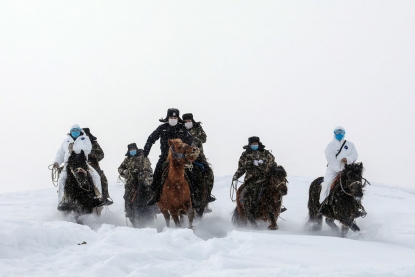 This photo taken on February 19, 2020 shows police officers wearing protective face masks riding horses on their way to visit residents who live in remote areas in Altay, farwest China's Xinjiang region, to promote the awareness of the virus. (AFP / Str)
This photo taken on February 19, 2020 shows police officers wearing protective face masks riding horses on their way to visit residents who live in remote areas in Altay, farwest China's Xinjiang region, to promote the awareness of the virus. (AFP / Str)The last few weeks of coverage have taught me that health misinformation is probably the most damaging type of misinformation we encounter online. It can literally cost lives. There are also tonnes of crackpot cures circulating at the moment which recommend protective methods and cures for the coronavirus; doctors have told us that none of them work. People living comfortably in developed countries with reliable healthcare systems might scoff at the idea that any of these suggested cures could fool people, but it’s a very different story for those living in developing countries. These people may not have access to good medical services or the correct medical advice about the coronavirus. They are possibly the most vulnerable to this type of misinformation.
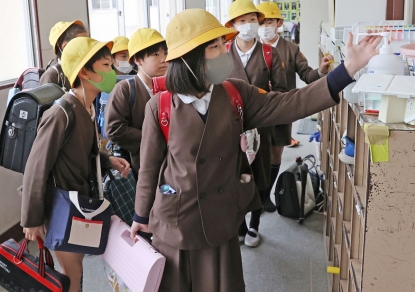 Elementary school children disinfect their hands before leaving school
in Osaka on February 28, 2020. (AFP / Str)
Elementary school children disinfect their hands before leaving school
in Osaka on February 28, 2020. (AFP / Str)But as I have discovered in Hong Kong, even people with better access to genuine information and good healthcare can be misled by a single WhatsApp message. We all need to be sceptical and questioning about what we read online if it is published by unverified sources, particularly when it concerns our health.
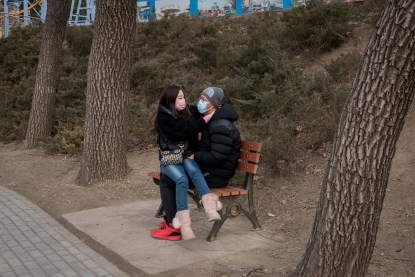 In this picture taken on February 25, 2020, a couple wearing protective facemasks, as a preventative measure against the COVID-19 coronavirus, share a romantic moment on a bench at a park in Beijing (AFP / Nicolas Asfouri)
In this picture taken on February 25, 2020, a couple wearing protective facemasks, as a preventative measure against the COVID-19 coronavirus, share a romantic moment on a bench at a park in Beijing (AFP / Nicolas Asfouri)




